by Mia M. McClain
In her 2010 collection of poems entitled Hard Times Require Furious Dancing, Alice Walker tells the story of life at the interstices of beauty and pain. In the forward of Walker’s book, Shiloh McCloud gives insight into her life:
“Alice Walker’s journey includes the death of loved ones and the birth of new ideas, the sorrow of rejection and the deliciousness of love…the challenges of our world and its blessings….We are witness to the self-confidence that so profoundly distinguishes Alice’s work—her ability to take that which is heart-wrenchingly sad…and weave a resolution that leaves the poem with a way to ‘be with’ that sorrow instead of becoming drowned in it.”
Walker details the challenges that she and many in her family experienced—mental health crisis, war, poverty, environmental devastation—and lets us know that through it all, she has learned to dance. “It isn’t that I didn’t know how to dance before,” Walker says. “Everyone in my community knew how to dance, even those with several left feet. I just didn’t know how basic it is for maintaining balance.”
Many of us find ourselves in this 23rd month of this disruption fighting to maintain balance. After the two years that we’ve been through—after the turmoil, the isolation, the uncertainty, the anxiety, pivoting to virtual, regathering, and then pivoting to virtual again—we could use a little dancing. We could all use something that makes us change our position—adjust our rhythm—learn flexibility in a world of rigidity. It is in the depths of our despair that we realize that our ability to dance—to shift—to change—is a part of our survival. The disruption of dance may be our only way forward as we begin to build something new.
Our 2022 theme at Myers Park Baptist Church is “Rebuilding Community.” We are focusing on getting to know each other better, and we’ve been sharing spotlights on staff and members every week in our newsletter. It is one example of how we are dancing through this never-ending saga, trying new things for the sake of life. Our hope is that this endeavor will help us rebuild connections, learn things we didn’t know, and discover people we may not have met yet, especially since much of our community still worships online. It has been a way to find balance between our prominent justice work and our missional responsibility to be community.
MPBC Mission: To be an inclusive community for spirituality and social justice
In this strange era of trying to do justice and love mercy while also re-building community amidst challenges, we have had to learn to dance. We have had to rely on every creative bone in our weary bodies. Walker’s use of dance acts as a metaphor for the various ways we must find hope and balance amidst chronic suffering and injustice. She reminds us ever so gently that hard times require furious dancing. It is not a coincidence that the reason the TikTok app blew up in the pandemic was because of viral videos of people dancing—in their homes, in the streets, to connect with others, to deal with isolation, to find some joy and healing amidst the agony. The furious dancing has not been a solution to all the perils of the pandemic; it couldn’t solve the medical and governmental catastrophes; but it was an ongoing resolution to carve out pieces of procreative joy that might bring bountiful blessings in the face of brokenness.
And the mourning gave way to dancing. – Psalm 30:11
Dance isn’t just about finding balance in a rocky situation; it is also about cultivating joy. It’s about coming alive in the face of death. It is about letting yourself feel all the emotions you’ve been suppressing since March 2020, unsure how to navigate grief over what’s been lost and gratitude that you’re still here.
There is a memorable scene in the film-version of Toni Morrison’s, Beloved. The late Beah Richards, portraying the character Baby Suggs, stands in what Morrison calls, “a wide-open place cut deep in the woods nobody knew.” In the center of the clearing, she calls forth her people, commanding them to dance!—to laugh!—to cry!—to feel. Out in the backwoods of a southern plantation, away from slave owners, Baby Suggs ushers in furious dancing.
“Let your mothers hear you laugh,” she shouts to the children!
“Let your children see you dance!” she demands of the men.
“Cry, for the living and the dead,” she tells the women.
Dance. Laugh. Cry. Away from the suffocating injustices and the devaluing of the Black body, Suggs proclaims, “In this here place, we flesh! Flesh that weeps, laughs; flesh that dances on bare feet in grass. Flesh that needs to be loved. Feet that need to rest and to dance;” Feet that need to dance.
After all the tense deacons meetings where we’ve had to make difficult decisions, after the realization that the member who died the week before the pandemic closure will never get the funeral she wanted, after the political turmoil that tried to divide many of our congregations, we are yet flesh. Our members and staff are flesh—flesh that needs to weep, flesh that needs to laugh, feet that need to dance. Hard times require furious dancing. Hard times require disruption of the status quo for the sake of life and balance. Hard times require us to do some things we’ve never done before—to lean into some things that make us uncomfortable—to do church and community in ways we’d never imagined—to explore the bounds of our flesh in a society bent on dismembering and ripping us apart with foolishness.
When we dance, we are remembering. We are re-membering—putting pieces of our body back together. We are rebuilding community. We are remembering the muscles we’ve forgotten existed—the gifts and talents that help make our communities flourish. We are disrupting sedentary status quos—passive existences that prefer stagnation over liberation—that prefer deadly tradition over life-giving innovation. When we dance at the end of the world, it is an act of resistance and resilience. It says, “In this here place, we flesh.” It says, “I will not leave this world dis-membered, disconnected and bound by the horrors of all we’ve seen. The spirit of God is upon us, and we will dance.”
Like Walker, we will not be drowned by our sorrows. We will be with them, and we will dance. Will you dance with me?
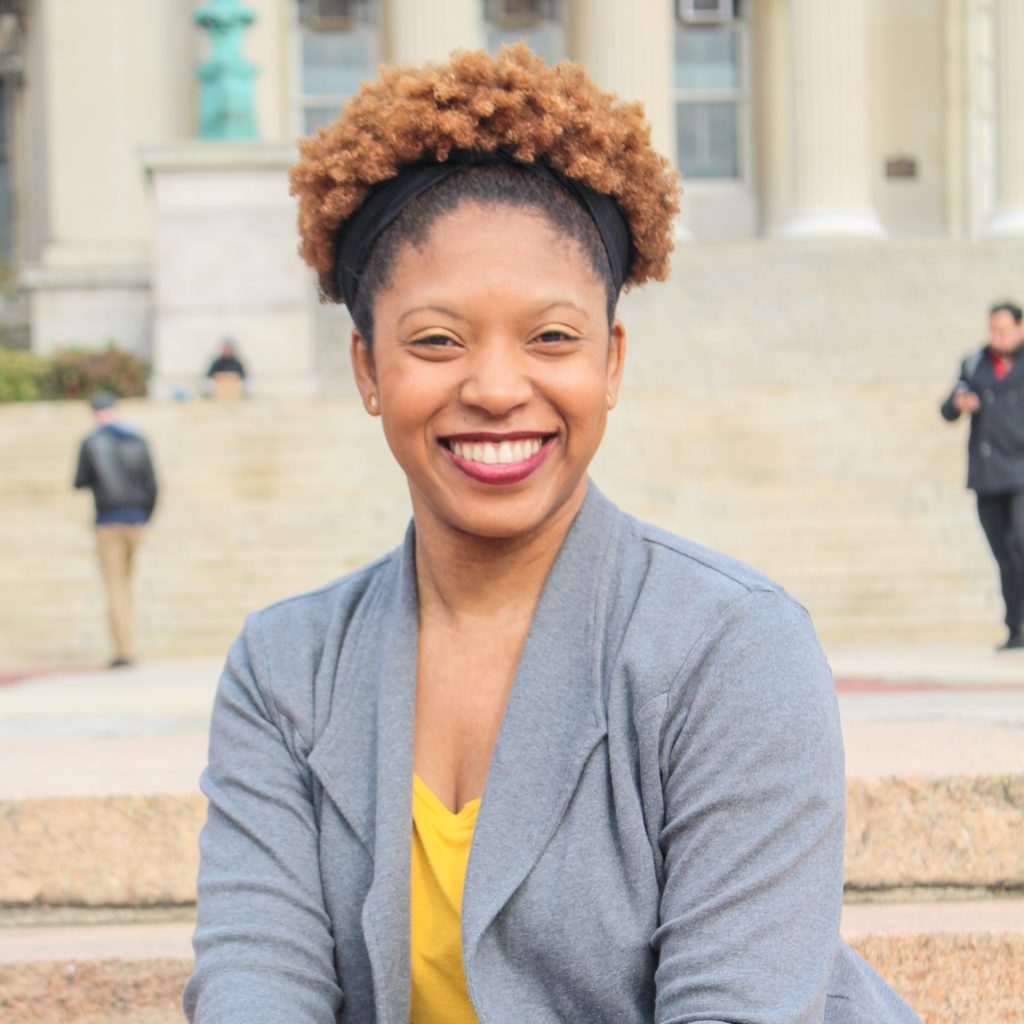
Mia M. McClain is a songwriter, pastor, king-cake lover, and dancer. She is a licensed Baptist minister and ordained in the United Church of Christ. She currently serves as the Associate Minister at congregational partner Myers Park Baptist Church in Charlotte, NC.

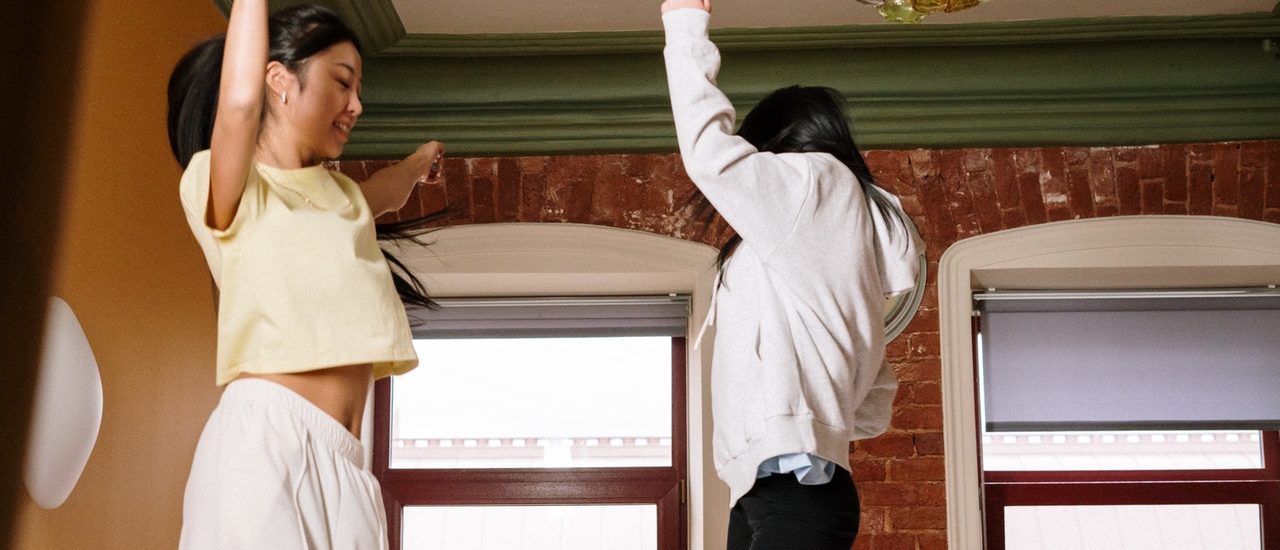
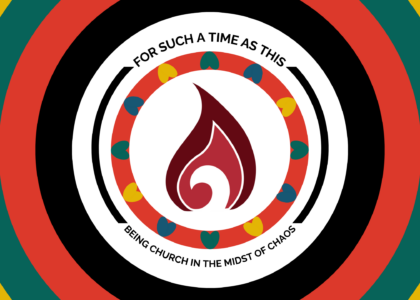
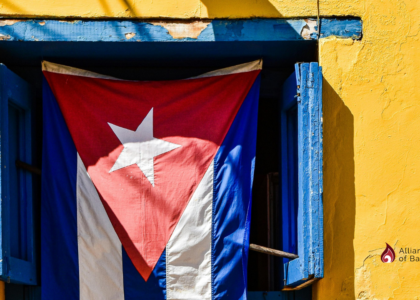
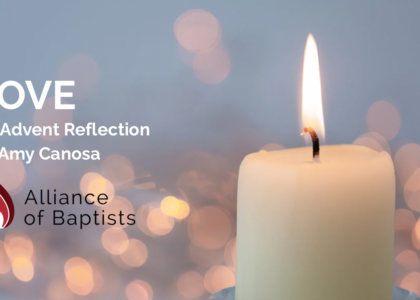
Thank you for the much needed reminder to dance, cultivate joy and be in our bodies – amidst and in response to the chaos all around us.
Wonderful article about dancing!
I suggest we incorporate a moment to dance in the virtual gathering this year.😀
What a magnificent and touching witness on an ice incarcerated morn! Thank you.